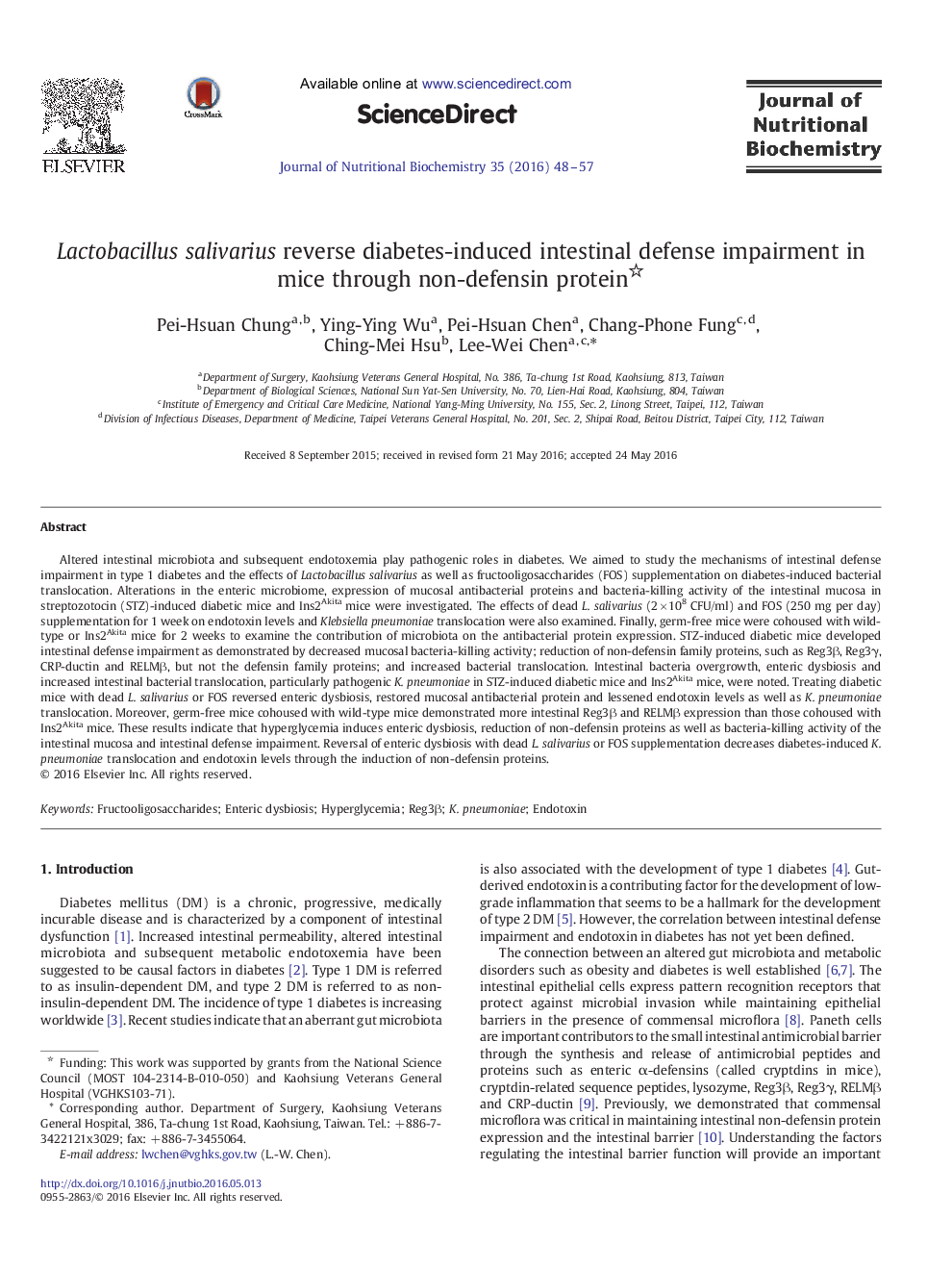| کد مقاله | کد نشریه | سال انتشار | مقاله انگلیسی | نسخه تمام متن |
|---|---|---|---|---|
| 1989515 | 1540633 | 2016 | 10 صفحه PDF | دانلود رایگان |

Altered intestinal microbiota and subsequent endotoxemia play pathogenic roles in diabetes. We aimed to study the mechanisms of intestinal defense impairment in type 1 diabetes and the effects of Lactobacillus salivarius as well as fructooligosaccharides (FOS) supplementation on diabetes-induced bacterial translocation. Alterations in the enteric microbiome, expression of mucosal antibacterial proteins and bacteria-killing activity of the intestinal mucosa in streptozotocin (STZ)-induced diabetic mice and Ins2Akita mice were investigated. The effects of dead L. salivarius (2 × 108 CFU/ml) and FOS (250 mg per day) supplementation for 1 week on endotoxin levels and Klebsiella pneumoniae translocation were also examined. Finally, germ-free mice were cohoused with wild-type or Ins2Akita mice for 2 weeks to examine the contribution of microbiota on the antibacterial protein expression. STZ-induced diabetic mice developed intestinal defense impairment as demonstrated by decreased mucosal bacteria-killing activity; reduction of non-defensin family proteins, such as Reg3β, Reg3γ, CRP-ductin and RELMβ, but not the defensin family proteins; and increased bacterial translocation. Intestinal bacteria overgrowth, enteric dysbiosis and increased intestinal bacterial translocation, particularly pathogenic K. pneumoniae in STZ-induced diabetic mice and Ins2Akita mice, were noted. Treating diabetic mice with dead L. salivarius or FOS reversed enteric dysbiosis, restored mucosal antibacterial protein and lessened endotoxin levels as well as K. pneumoniae translocation. Moreover, germ-free mice cohoused with wild-type mice demonstrated more intestinal Reg3β and RELMβ expression than those cohoused with Ins2Akita mice. These results indicate that hyperglycemia induces enteric dysbiosis, reduction of non-defensin proteins as well as bacteria-killing activity of the intestinal mucosa and intestinal defense impairment. Reversal of enteric dysbiosis with dead L. salivarius or FOS supplementation decreases diabetes-induced K. pneumoniae translocation and endotoxin levels through the induction of non-defensin proteins.
Journal: The Journal of Nutritional Biochemistry - Volume 35, September 2016, Pages 48–57